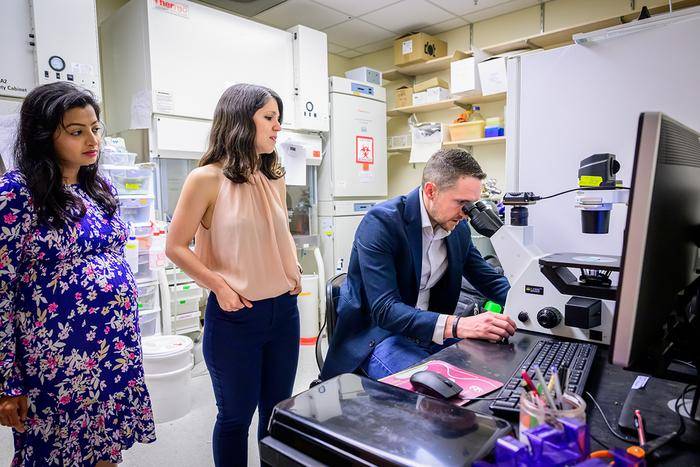The gut microbes of older mice can trigger a rise in inflammation when transplanted into young mice, a new study has found, suggesting that changes in the gut microbiome with age may contribute to the chronic low-grade inflammation often seen in aging humans.
Researchers at the University of Illinois Urbana-Champaign and the University of Alabama at Birmingham transplanted gut microbes from aged mice into young “germ-free” mice, which had been raised to have no gut microbes of their own. These recipient mice subsequently experienced an increase in inflammation that mirrors inflammatory processes associated with aging in humans. In contrast, young germ-free mice that received microbes from other young mice showed no such increase.
“There’s been a growing consensus that aging is associated with a progressive increase in chronic low-grade inflammation,” said Jacob Allen, a professor of kinesiology and community health at the University of Illinois Urbana-Champaign who co-led the research. “And there’s a kind of debate as to what drives this, what is the major cause of the aging-induced inflammatory state. We wanted to understand if the functional capacity of the microbiome was changing in a way that might contribute to some of the inflammation that we see with aging.”
Microbial Changes Linked to Health Conditions
Earlier studies have identified associations between age-related shifts in the composition of gut microbes and chronic inflammatory diseases such as Parkinson’s and Alzheimer’s. Some research has also connected microbial metabolism to an individual’s vulnerability to other health issues, including obesity, irritable bowel syndrome, and heart disease. The researchers noted that age-related changes in the gut microbiome may also contribute to the “leaky gut” problem.
“Microbiome patterns in aged mice are strongly associated with signs of bacterial-induced barrier disruption and immune infiltration,” they wrote.
“The things that are in our gut are supposed to be kept separate from the rest of our system,” said Thomas Buford, a professor of medicine at the University of Alabama at Birmingham who co-led the study. “If they leak out, our immune system is going to recognize them. And so then the question was: ‘Is that a source of inflammation?'”
Antibiotics Have Longer-Lasting Impact on Aged Microbiomes
The study, published in the journal Aging Cell, also discovered that antibiotics caused more persistent disruptions to the gut microbiomes of aged mice compared to young mice.
In experiments where mice were treated with broad-spectrum antibiotics, the researchers tracked changes in their microbiomes during treatment and for seven days afterward.
“One of the most interesting questions for me was what microbes come back immediately after the treatment with antibiotics ends,” Buford said. And in the mice with aged microbiota in their guts, “these opportunistic pathogens were the most quick to come back.”
“It appears that as we age our microbiome might be less resilient to antibiotic challenges,” Allen added. “This is important because we know that in the U.S. and other Western societies, we’re increasingly exposed to more antibiotics as we age.”
The researchers emphasized that the study represents an important advance in understanding how age-related microbial changes in the gut may impact long-term health and inflammation.


